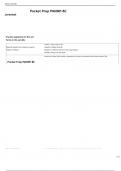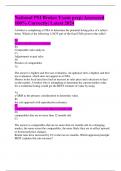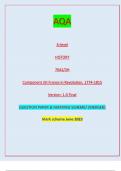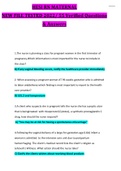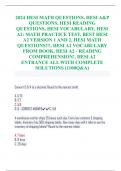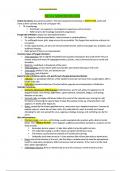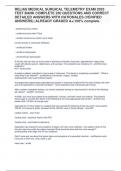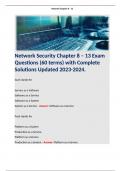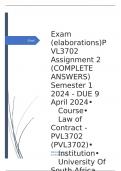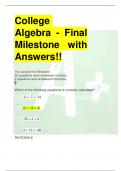Exam (elaborations)
Pocket Prep PMHNP-BC Practice questions for this set Terms in this set (68) Ethical Principal Terms (Justice, Veracity, Respect, Fidelity) • Justice: Doing what is fair • Veracity: Telling the truth • Respect: Treating everyone with equal dignity
- Course
- Institution
Pocket Prep PMHNP-BC Practice questions for this set Terms in this set (68) Ethical Principal Terms (Justice, Veracity, Respect, Fidelity) • Justice: Doing what is fair • Veracity: Telling the truth • Respect: Treating everyone with equal dignity • Fidelity: Being true...
[Show more]
